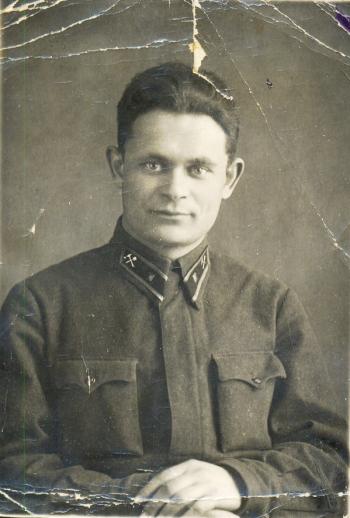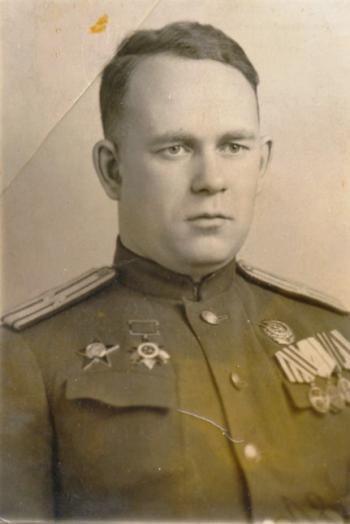Meyer and Iosif Ravich were born in Ekaterinburg in 1910 and 1914, respectively. Their father Zalman had fought in the Russo-Japanese War of 1905, and been awarded the Cross of St. George. This high honor gave the Jew Zalman Ravich the right to reside in any city of the Russian Empire. He chose Ekaterinburg, and the rest of the family eventually joined him there. After settling in the city, he opened a butcher's shop.
Shortly before the Nazi invasion of the USSR on June 22, 1941, Meyer Ravich finished building the Construction Faculty of the Ural Industrial Institute. After the outbreak of war, he was drafted into the Red Army and sent to the front as platoon commander in a sapper battalion of a rifle division. According to documents received by his relatives, Meyer Ravich went missing in action in December 1941. Thanks to "Margarita's List" (compiled by the military investigator Margarita Kotikovskaya – who, searching for her missing husband decades after the war, learned that thousands of Soviet POWs had been shot near the Dachau Concentration Camp; she was able to recover the names of 863 of the victims), they later learned that Meyer Ravich had been taken prisoner in Lithuania on June 30, 1941. He was then transferred to Hebertshausen, an SS shooting range located some five kilometers from Dachau. The place was home to a marksmanship school, where SS men trained by shooting at live targets (i.e., Soviet POWs).
Meyer Ravich was shot there on September 20, 1941. Nowadays, the site of the former shooting range is marked with a monument erected by the Bavarian authorities on the basis of "Margarita's List".
His brother Iosif Ravich was a major specialist in communications. In the prewar period, he worked as chief engineer in the Administration for the Construction of Communications Installations. From the first days of the war, Iosif served in the field. Until 1943, he was commander of a communications battalion. He was then recalled from the front and appointed director of the Central Administration of the Cable Line Infrastructure of the People's Commissariat of Communication of the USSR. In the course of the war, Engineer-Colonel Iosif Ravich was awarded the Order of the Patriotic War, 1st class; the Order of the Red Banner, and several medals.
In the 1980s, he became Deputy Minister of Communication of the USSR and received prestigious official awards.
Iosif Ravich died in Moscow in 1999, and was buried at the Donskoye Cemetery.








